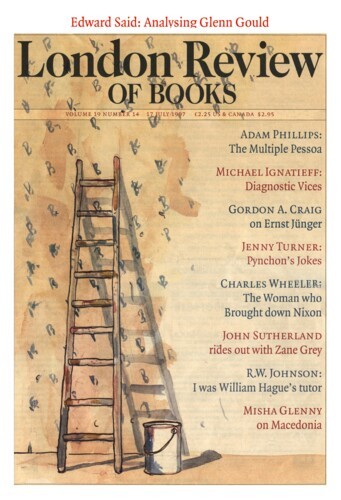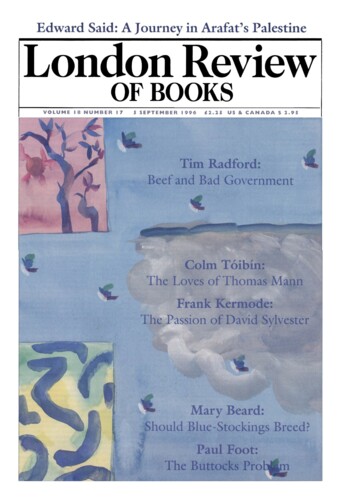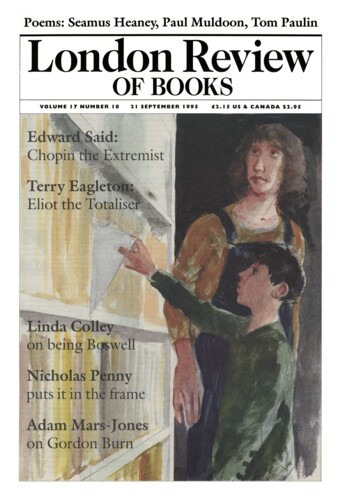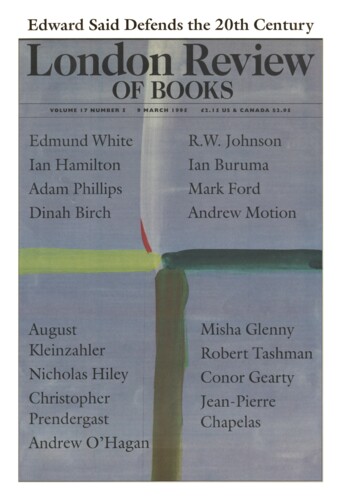In the Chair
Edward Said, 17 July 1997
One of the most talked and written about musicians after World War Two, Glenn Gould quite consciously set about making himself interesting and eccentric. Most performers do, but Gould went beyond anyone. It helped a great deal that he had a phenomenal digital gift, a perfect memory, a very high intelligence, but in addition he was self-conscious and self-observant to an extent most other performers would scarcely be able to imagine. This was not just a matter of takes and re-takes of everything he played, but also of imagining and thinking about himself playing in the greatest detail. In 1964, when he was 34, he deserted the concert stage and retired into an appallingly claustrophobic world of his own making: he never woke up before three in the afternoon, rarely left his hotel room in Toronto, worked all night with his own tape-recorders and splicing-machines, and with a few exceptions, confined his social life to long phone calls after midnight. He was very secretive, despite his loquacity, and hated any criticism, even though his playing was so original and compelling that he became a cult figure among other musicians and the general public when he was still in his twenties.




